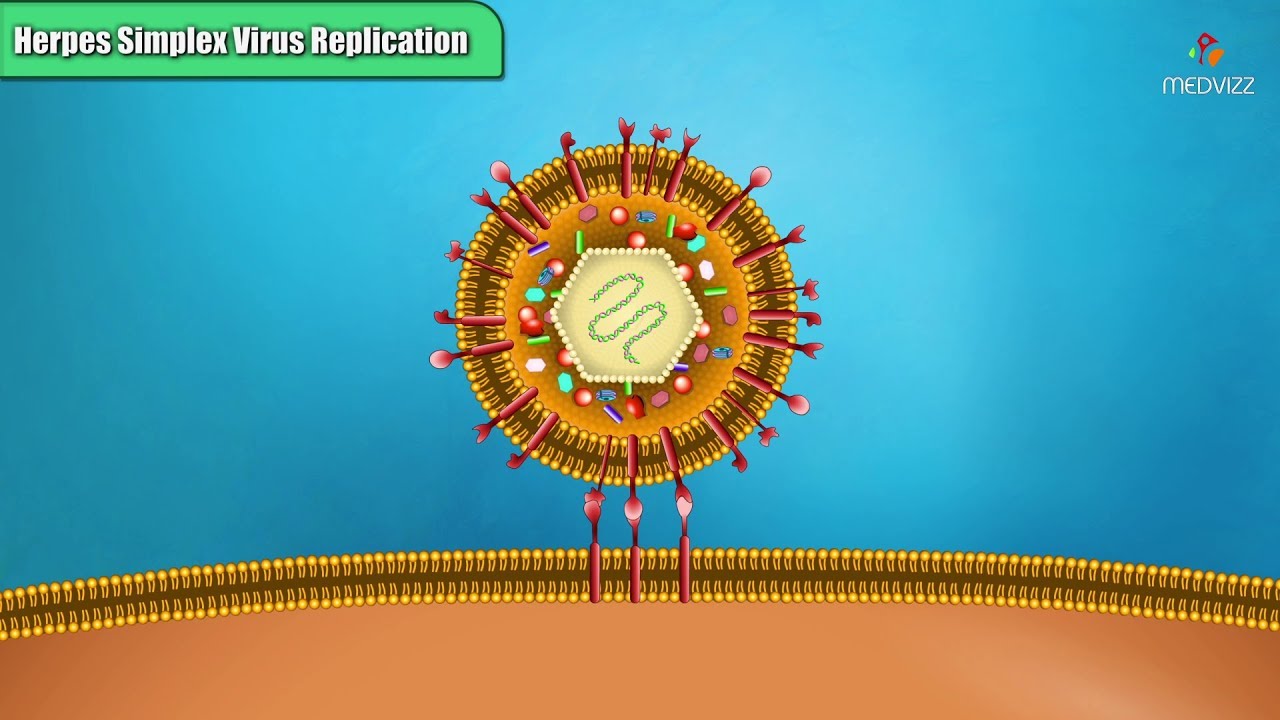Why Herpes never goes away | The Institute of Human Anatomy
Summary
TLDRThis video explores the complexities of herpes, focusing on why the virus remains in the body and its reactivation cycles. It explains the difference between HSV-1 and HSV-2, how the virus is transmitted, and the challenges in eradicating it. Viewers will learn about primary and latent infections, reactivation triggers, and the treatments available, including antiviral medications. The video also touches on the possibility of asymptomatic infections and the role of the immune system. Additionally, the host shares insights into how understanding anatomy and physiology can aid in comprehending real-world health issues like herpes.
Takeaways
- 😀 Herpes is a viral infection caused by HSV-1 or HSV-2, both of which lead to painful skin lesions.
- 😀 HSV-1 is most commonly associated with cold sores around the mouth, while HSV-2 is typically found in genital areas.
- 😀 Both HSV-1 and HSV-2 can be transferred between the mouth and genital areas through oral intercourse.
- 😀 Herpes is not curable, but the body can manage it by keeping the virus in a latent state within sensory ganglions.
- 😀 The virus can reactivate periodically, leading to flare-ups that may cause painful lesions, itching, and discomfort.
- 😀 Symptoms like tingling, burning, or itching can occur before visible sores appear, which are known as prodromal symptoms.
- 😀 Factors like stress, immune deficiency, fever, and sunlight can trigger herpes reactivation.
- 😀 Antiviral medications such as Valacyclovir and Acyclovir can help slow viral replication and reduce the severity and duration of outbreaks.
- 😀 Initiating antiviral treatment early, during prodromal symptoms, is most effective in shortening an outbreak's duration.
- 😀 Long-term suppressive antiviral therapy can be used for those with frequent or severe outbreaks to reduce the frequency of flare-ups.
Q & A
What is herpes and why is it often referred to as 'the gift that keeps on giving'?
-Herpes is a viral infection that causes vesicular lesions (blisters) on the skin. It is often referred to as 'the gift that keeps on giving' because the virus remains in the body for life, leading to potential recurrent outbreaks or flare-ups that can occur at any time.
What are the two main types of herpes viruses?
-The two main types of herpes viruses are Herpes Simplex Virus Type 1 (HSV-1) and Herpes Simplex Virus Type 2 (HSV-2). HSV-1 is typically associated with oral sores (cold sores), while HSV-2 is generally associated with genital sores.
Can HSV-1 cause genital herpes and HSV-2 cause oral herpes?
-Yes, although HSV-1 is most commonly associated with oral herpes and HSV-2 with genital herpes, both types can be transmitted to both the genital and oral regions through oral-genital contact.
How is HSV-1 typically contracted?
-HSV-1 is most commonly contracted through direct contact with infected oral secretions, often during childhood, such as through kissing or sharing items like cups or utensils from someone with an active infection.
Why is it difficult for the body to completely eradicate herpes?
-Herpes is difficult to fully eradicate because the virus can hide in sensory ganglia (clusters of nerve cells) after the initial infection, where it remains dormant and can later reactivate, causing recurrent outbreaks.
What is the difference between the primary infection and latent phase of herpes?
-The primary infection occurs when the virus first enters the body and causes symptoms like sores and fever. The latent phase follows, where the virus becomes dormant in sensory neurons, avoiding complete eradication by the immune system but remaining in the body.
What triggers the reactivation of herpes infections?
-Herpes reactivation can be triggered by factors like stress, immunodeficiency, sunlight, and fever. This can cause the virus to travel back down the sensory neuron, leading to the recurrence of lesions or sores.
What are prodromal symptoms of herpes, and when do they occur?
-Prodromal symptoms are early warning signs that occur 1-2 days before the appearance of sores. These symptoms include pain, burning, tingling, and itching along the path of the affected sensory neuron.
Can some people with herpes be asymptomatic?
-Yes, many people with herpes, especially HSV-1, can be asymptomatic or have very mild symptoms. This means they may have had a primary infection without noticing it and their immune system may keep the virus in check, reducing flare-ups.
Are there treatments available for herpes outbreaks, and how effective are they?
-Yes, antiviral medications like Valacyclovir, Acyclovir, and Famciclovir can help manage herpes outbreaks. These medications don't cure the virus but can reduce the severity and duration of outbreaks when taken early, especially during prodromal symptoms.
Outlines

Dieser Bereich ist nur für Premium-Benutzer verfügbar. Bitte führen Sie ein Upgrade durch, um auf diesen Abschnitt zuzugreifen.
Upgrade durchführenMindmap

Dieser Bereich ist nur für Premium-Benutzer verfügbar. Bitte führen Sie ein Upgrade durch, um auf diesen Abschnitt zuzugreifen.
Upgrade durchführenKeywords

Dieser Bereich ist nur für Premium-Benutzer verfügbar. Bitte führen Sie ein Upgrade durch, um auf diesen Abschnitt zuzugreifen.
Upgrade durchführenHighlights

Dieser Bereich ist nur für Premium-Benutzer verfügbar. Bitte führen Sie ein Upgrade durch, um auf diesen Abschnitt zuzugreifen.
Upgrade durchführenTranscripts

Dieser Bereich ist nur für Premium-Benutzer verfügbar. Bitte führen Sie ein Upgrade durch, um auf diesen Abschnitt zuzugreifen.
Upgrade durchführenWeitere ähnliche Videos ansehen

Virus Reproduction | Lytic and Lysogenic cycles

Put Epstein-Barr Virus to Bed for Good (No More Reactivation!)

Vírus - ciclo lítico e ciclo lisogênico (com animação!) (Mais Biologia, com Roger Maia)

Herpes simplex virus replication Steps - Microbiology Animations

Pengenalan Virus: Apa Itu Virus?

Herpes Simplex, Causes, Signs and Symptoms, Diagnosis and Treatment.
5.0 / 5 (0 votes)
